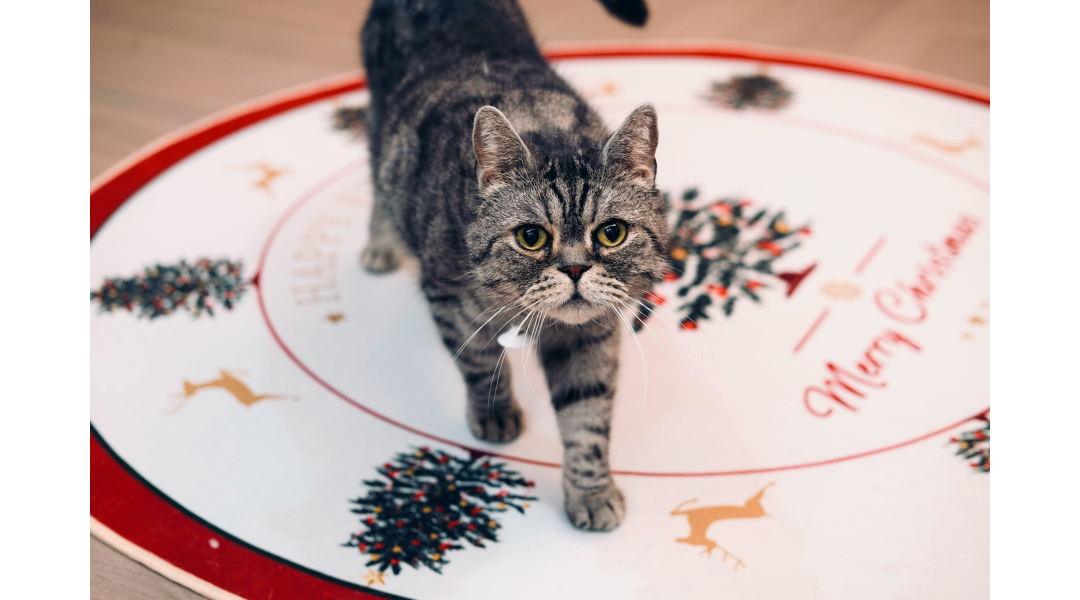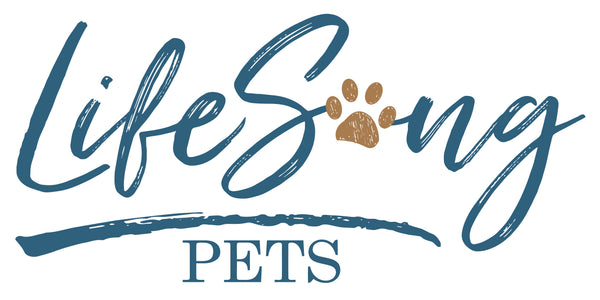
Pet Safety Tips for Holidays: Keeping Your Furry Friends Safe and Happy
LifeSong StaffHolidays are a time for celebration, gathering with loved ones, and enjoying special treats. However, these festive times can also pose various risks to our pets. From toxic foods to dangerous decorations, the holiday season requires extra vigilance to ensure our pets remain safe and comfortable. Whether you’re celebrating Christmas, Thanksgiving, Halloween, or any other holiday, here are some essential pet safety tips to keep in mind.
1. Secure Holiday Decorations
Holiday decorations can be a delight for humans, but they can also be a source of curiosity—and potential danger—for pets. Here’s how to keep your decorations pet-friendly:
- Christmas Trees: If you have a Christmas tree, make sure it’s securely anchored to prevent it from tipping over if your pet decides to climb or jump on it. Consider using a pet gate or other barrier to keep your dog or cat away from the tree. Avoid using tinsel, which can be tempting for pets but dangerous if ingested, as it can cause intestinal blockages.
- Ornaments: Keep ornaments, especially those made of glass, out of reach. Broken ornaments can cause cuts or internal injuries if swallowed. Opt for shatterproof ornaments and place fragile items higher up on the tree. Avoid edible ornaments like popcorn strings, as they can attract pets and lead to choking or ingestion of harmful materials.
- Lights and Cords: Holiday lights can be beautiful, but they can also be hazardous for pets. Keep electrical cords out of reach or cover them with cord protectors to prevent chewing. If your pet chews on a cord, they could suffer from electrical burns or even electrocution. Turn off lights when you’re not home to minimize risks.
- Candles: Candles can add warmth and ambiance to your holiday celebrations, but they also pose a fire risk if knocked over by a curious pet. Consider using flameless candles to achieve the same effect without the danger. If you do use real candles, never leave them unattended and place them out of your pet’s reach.
2. Be Cautious with Holiday Foods
Holiday feasts often include rich and indulgent foods, many of which can be harmful to pets. To keep your pets safe, be aware of the following food-related hazards:
- Toxic Foods: Some common holiday foods are toxic to pets. Chocolate, grapes, raisins, onions, garlic, and certain nuts (like macadamias) are all dangerous for dogs and cats. Even small amounts can cause serious health issues. Alcohol is also toxic to pets, so be sure to keep drinks out of reach.
- Fatty Foods: Fatty foods like gravy, butter, and rich meats can lead to pancreatitis in pets, a painful and potentially life-threatening condition. Avoid giving your pet table scraps, and instead offer them safe, pet-friendly treats or snacks made specifically for them.
- Bones: While it may seem natural to give your dog a bone, cooked bones can splinter and cause choking, blockages, or internal injuries. Stick to safe chew toys or bones designed for dogs to satisfy their chewing instincts.
- Candy and Sweets: Many holiday treats, especially those containing xylitol (a common sugar substitute), are extremely toxic to pets. Xylitol can cause a rapid drop in blood sugar, leading to seizures, liver failure, or even death in dogs. Keep all sweets out of your pet’s reach, and educate your guests about the dangers of sharing treats with pets.
3. Create a Pet-Safe Space
Holidays often bring extra noise, visitors, and activity into the home, which can be overwhelming for pets. Creating a quiet, safe space for your pet can help reduce stress and keep them calm during the festivities:
- Quiet Room: Set up a quiet room or area in your home where your pet can retreat if they become anxious or overstimulated. Include their bed, toys, and water to make the space comfortable. If you’re hosting a large gathering, consider keeping your pet in this room to prevent them from becoming overwhelmed by the noise and activity.
- Routine Maintenance: Try to maintain your pet’s regular routine as much as possible during the holidays. Stick to their usual feeding, walking, and playtimes to help them feel secure and reduce stress.
- Background Noise: If your pet is sensitive to loud noises, such as fireworks on New Year’s Eve, consider playing calming background noise like soft music or white noise to drown out the sounds and help them relax.
4. Mindful of Visitors and Exits
Holiday gatherings often mean more visitors, which can be stressful for pets and increase the risk of them escaping. Here’s how to manage your pet’s safety during parties and events:
- Supervision: Keep a close eye on your pet during gatherings, especially when people are coming and going. Pets may try to slip out the door unnoticed, so consider using a baby gate or keeping your pet in a secure room to prevent escapes.
- Identification: Ensure your pet has proper identification, including a collar with an ID tag that has your current contact information. If your pet isn’t already microchipped, consider having this done before the holiday season. Microchipping is a reliable way to help reunite you with your pet if they get lost.
- Introduce Guests Slowly: If your pet is nervous around strangers, introduce them to guests gradually and allow them to approach on their terms. Provide your pet with positive reinforcement, like treats or praise, when they interact calmly with visitors.
5. Traveling with Pets
If you’re traveling with your pet during the holidays, it’s important to plan ahead to ensure their safety and comfort:
- Secure Transportation: Whether you’re traveling by car, plane, or train, make sure your pet is secured in a crate, carrier, or pet seatbelt. This helps prevent injuries in case of sudden stops or accidents. Never allow your pet to roam freely in the vehicle.
- Pack Essentials: Bring along your pet’s essentials, including food, water, bowls, a leash, waste bags, and any medications they may need. Pack familiar items like their bed or favorite toys to help them feel more comfortable in unfamiliar surroundings.
- Health Certificates: If you’re traveling out of state or internationally, check if your destination requires a health certificate for your pet. Schedule a visit to the vet before your trip to ensure your pet is healthy and up-to-date on vaccinations.
- Pet-Friendly Accommodations: Research and book pet-friendly accommodations in advance. Not all hotels or rentals allow pets, so confirm their policies and any additional fees before you travel. Be respectful of the property and follow any rules regarding pets.
6. Pet-Safe Holiday Activities
Incorporate your pet into the holiday festivities with pet-safe activities that are both fun and safe:
- Holiday Photos: Dress your pet in a comfortable, non-restrictive holiday outfit or festive collar for a family photo. Ensure the outfit doesn’t have small parts that could be chewed off and swallowed. Take breaks if your pet seems uncomfortable or stressed.
- Pet-Friendly Treats: Make or buy special holiday treats that are safe for pets. There are plenty of recipes for homemade dog or cat treats that use pet-friendly ingredients. Just be sure to avoid any ingredients that could be harmful to your pet.
- Interactive Toys: Gift your pet an interactive toy to keep them entertained during the holiday season. Puzzle toys, treat-dispensing balls, or new chew toys can provide mental stimulation and help your pet burn off energy in a positive way.
7. Emergency Preparedness
Even with the best precautions, accidents can happen. Be prepared to handle any potential emergencies:
- Know Your Vet’s Hours: Familiarize yourself with your regular vet’s holiday hours and have the contact information for an emergency vet clinic on hand in case your pet needs urgent care.
- First Aid Kit: Keep a pet-specific first aid kit in your home and car. This kit should include items like bandages, antiseptic wipes, tweezers, and any medications your pet may need. Familiarize yourself with basic pet first aid procedures.
- Pet Insurance: If you have pet insurance, review your policy to understand what’s covered during the holidays. In the event of an emergency, knowing your coverage can help you make quick decisions about your pet’s care.
Conclusion
The holidays are a special time, and with a little extra care and attention, you can ensure that your furry friends are safe, happy, and healthy throughout the season. By securing decorations, being mindful of food hazards, creating a pet-safe environment, and preparing for travel, you’ll be well-equipped to enjoy the festivities with your pet by your side. Keep these pet safety tips in mind, and make the holidays a joyous occasion for everyone in your family—both two-legged and four-legged.
